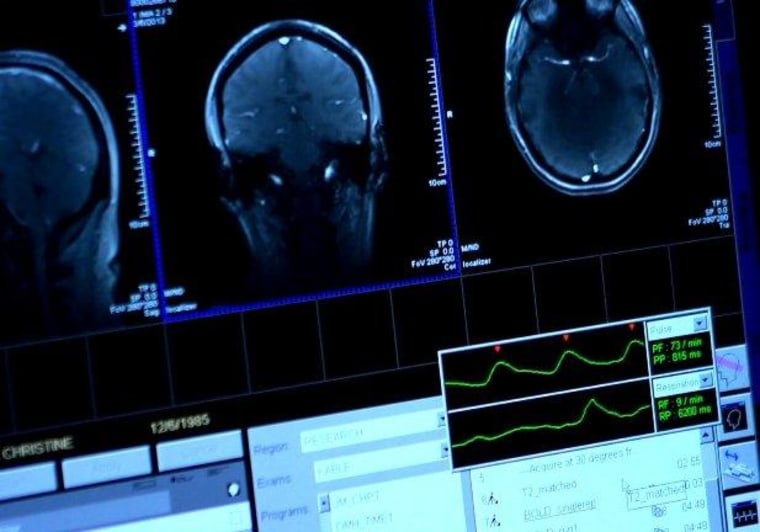Bet your bottom dollar that tomorrow, there will be sun, Little Orphan Annie sang. Recent neuroeconomics research suggests she was onto something.
The key to saving money for the future might not be self-discipline, but rather the ability to imagine that tomorrow, indeed, is coming. Having a good imagination can be linked to healthy eating habits, resistance to drug use, even avoiding divorce, say researchers at the University of Pennsylvania.
Joe Kable is a specialist in the field of neuroeconomics at the Ivy League school, where he is imagining better ways to understand why people do what they do with money.He spends his days getting volunteers to lie down in a machine that maps brain activity. He asks them questions about money and studies which parts of their brains light up.
Recently, his research took an inspirational turn. He found that subjects whose brains show added activity when imagining the future also make better decisions about money. Kable suspects that consumers who can really, viscerally imagine how great that new car will smell when they drive off the lot, or how excited they will be when getting the keys to a new home, have a much easier time saving money. Conversely, those who have dull imaginations tend to live in the present, and blow their cash on payday.
The discovery could change the way we teach people to save, Kable said.
"These findings invert an old idea about delaying gratification," Kable said. "Right now, we are trying to to tamp down the immediate temptations. But instead, it's better to ramp up the desire for that future outcome."
Kable says there's high correlation between imagination brain activity and skill at discounting,which is the ability to make proper trade-offs between money and time. In a typical discounting question, subjects are asked if they would prefer to get $10 today or $20 in two weeks. Consumers who are poor at discounting take the money and run.
"Brain activity when engaged in future thinking predicts who will defer for the delayed reward in a choice path," he said. "The richness or vividness of the scene that people are imagining, or the valence (positive or negative feelings) associated with it, increases the likelihood that someone will pass on immediate gratification."
His initial findings on imagination are included in a paper that is currently under peer review, and his research projects continue. But Kable isn't the only one using a vivid imagination to analyze saving patterns.
Hal Hershfield, a professor at NYU's Stern School of Business, has found that the more subjects are able to imagine themselves in the future, the better they are at saving for retirement today.
Most people treat their future selves as strangers, Hershfield says. To them, putting money into a retirement account feels about the same as donating to a charity. In other words, they don't take saving personally.
"What our research has been showing is that if people think of their later selves as a different person altogether - one who they're not at all close to - then that has deep implications," he said. He calls this a lack of “self-continuity.” “Some of us think of the future self as a different person to whom we feel close, like a best friend, and others of us think of our future selves as a different person who feels distant and estranged, like a co-worker you barely know. It's the latter case that presents a problem.”
To change that, Hershfield uses computer simulators to show people versions of themselves 20 or 30 years into the future -- he calls it an "imagination age." Consistently, they get religion about planning for the future, he says.
"If you can somehow boost their connectedness with that person in the future, they save more," he said.
Skill in imagining the future has implications that range far beyond money choices, Kable says.
"Those who chose the delayed reward are less likely to use drugs. They are likely to be lower weight, and make better diet choices...and have other positive health outcomes. They don't smoke," he said. "There is an association with school performance...even things like they are less likely to get divorced, even less likely to be under water on their mortgage."
RED TAPE WRESTLING TIPS
Both Kable and Hershfield believe imagination skills are partly predetermined by genetics and environment, but they also think people can improve this critical skill.
Hershfield says consumers can try one of the various free apps that allow users to upload pictures and see aged versions of their face, but these often aren't accurate enough to have a deep impact.
Other ideas:
- When making a big purchase, spend 30 seconds thinking about how your future self will react to it.
- Write a letter to your future self that you imagine you'll read later; or write a letter from your future self to be read today, like this: "Bob, this is you at age 65. I know a convertible would be fun, but if you saved the money instead, I could buy a cabin in the Poconos."
